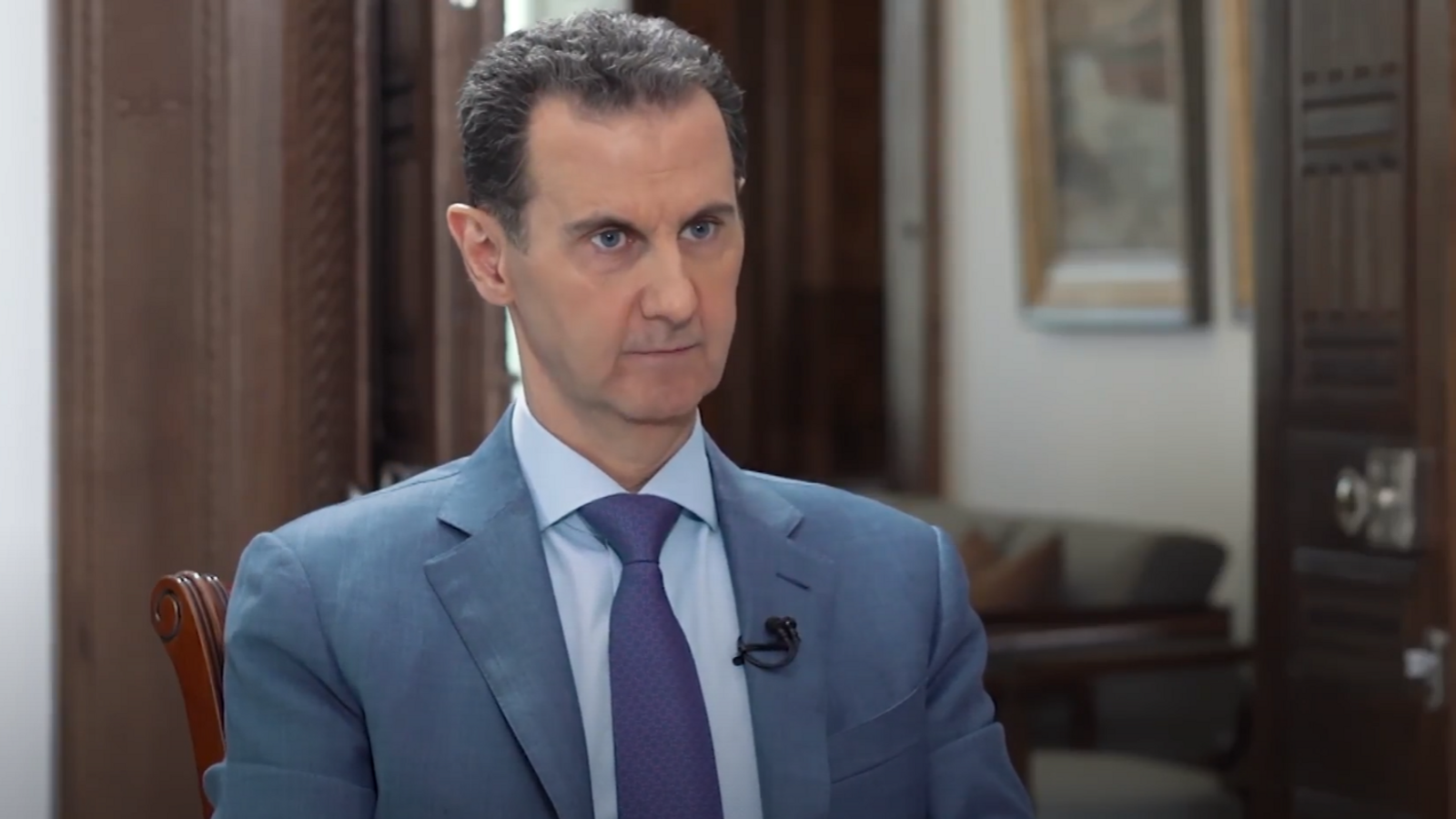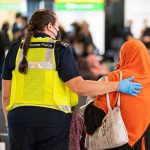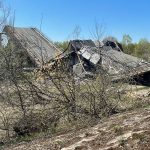Syrian President Bashar al Assad has said he would welcome home refugees who escaped the country’s long-running civil war.
In an exclusive interview with Sky News Arabia, he blamed the country’s economic situation as the reason why refugees are not returning to their homeland, pointing to the “image of war” in Syria for the lack of much-needed international investment in its economy.
“Over the last few years we’ve seen just under half a million people return and none of them were harmed,” he said.
“What’s stopped more from coming back is the economic situation.
“How can a refugee return without electricity or school for his children or medical treatment? These are life’s essentials.
“That’s the reason.
“We pardoned all refugees who came back apart from people who committed serious crimes.”
Syria’s neighbours have accepted Assad has won the war – and he’s not going anywhere
Syrian President Bashar al Assad attends Arab League summit after 12-year ban
Syria President Bashar al Assad invited by UAE to COP28 climate summit
But several human rights groups and international organisations including the United Nations, Human Rights Watch and Amnesty International have said it is unsafe for refugees to return to Syria.
Those who have returned faced “grave human rights abuses and persecution at the hands of the Syria government and affiliated militias”, Human Rights Watch said.
Syria is subject to tough US sanctions – called the Caesar Act – which President Assad says “is an obstacle without doubt but it is not the biggest obstacle”.
“The biggest obstacle is the terrorist demolishing the infrastructure. The biggest obstacle is the image of war in Syria which prohibits any investor from dealing with the Syrian market,” he said.
Syria’s currency is collapsing and the country is suffering from a lack of electricity, medicine and daily essentials, despite support from Russia and Iran.
War in Syria broke out in 2011, with August 2023 marking ten years since then President Obama decided not to bomb Syria after chemical weapons were used in the country.
President Assad has now regained control of the capital Damascus and most urban areas.
The war rages on with the UN estimating that more than 300,000 civilians were killed in the first decade of the conflict.
In the 12-year conflict, more than half of the country’s 22 million pre-war population fled their homes with the civil war a major factor in Europe’s migrant crisis.
The governments of Canada and the Netherlands recently filed torture complaints against Syria in the International Court of Justice over the “unlawful killing” of thousands of civilians.
Middle East correspondent
It is ten years, to the month, since President Obama decided at the last minute not to bomb Syria after chemical weapons were used in the country.
In the years since, tens of thousands more people have been killed in fighting and the civil war continues – but President Bashar al Assad has regained control of the capital, Damascus, and most urban areas in Syria.
Millions of Syrians fled the fighting and are still refugees, unable to return to their homes.
Many have tried to make the dangerous sea crossings into Europe – the Syrian civil war is a large factor in the migrant crisis on European shores.
Assad’s claim in the interview with Sky News Arabia, that he would welcome the refugees home, ignores the reality that many don’t want to return to a country under his rule.
With parts of Syria still in rebel hands, Assad cannot claim outright victory, but he is being accepted back into the Arab world.
He desperately needs investment with Syria’s economy facing tough US sanctions, its currency collapsing and a lack of electricity, medicine and daily essentials.
Support from his allies – Russia and Iran – is not enough.
Bashar al Assad is showing confidence to travel abroad again and is starting to rebuild his power. That power is limited though.
He might have survived the Arab Spring when most leaders didn’t but he is still a pariah in the West, accused of war crimes, and his country is still at war and in ruins.
But accusations of war crimes against President Assad have not stopped him from slowly being reaccepted by Middle Eastern leaders.
He recently attended the annual Arab League summit after he was suspended by the alliance during his crackdown on pro-democracy protests that led to the breakout of the civil war.
Read more:
Syria’s neighbours have accepted Assad has won the war
Arab League votes to readmit Syria
Be the first to get Breaking News
Install the Sky News app for free
President Assad also said fleeing Syria during the war was “never on the cards” for him.
He told Sky News Arabia: “There were no internal demands for the president to depart. It’s important for a president to leave, or to leave his responsibilities to be more precise, when the people demand it – not due to external interference or external wars.
“When it’s due to internal reasons that’s normal but when it’s because of external war that’s called escape or to flee. And me fleeing was never on the cards.”






















